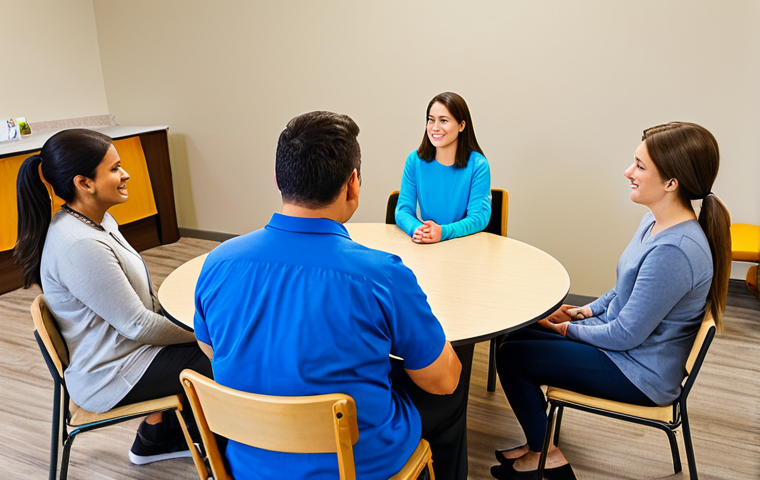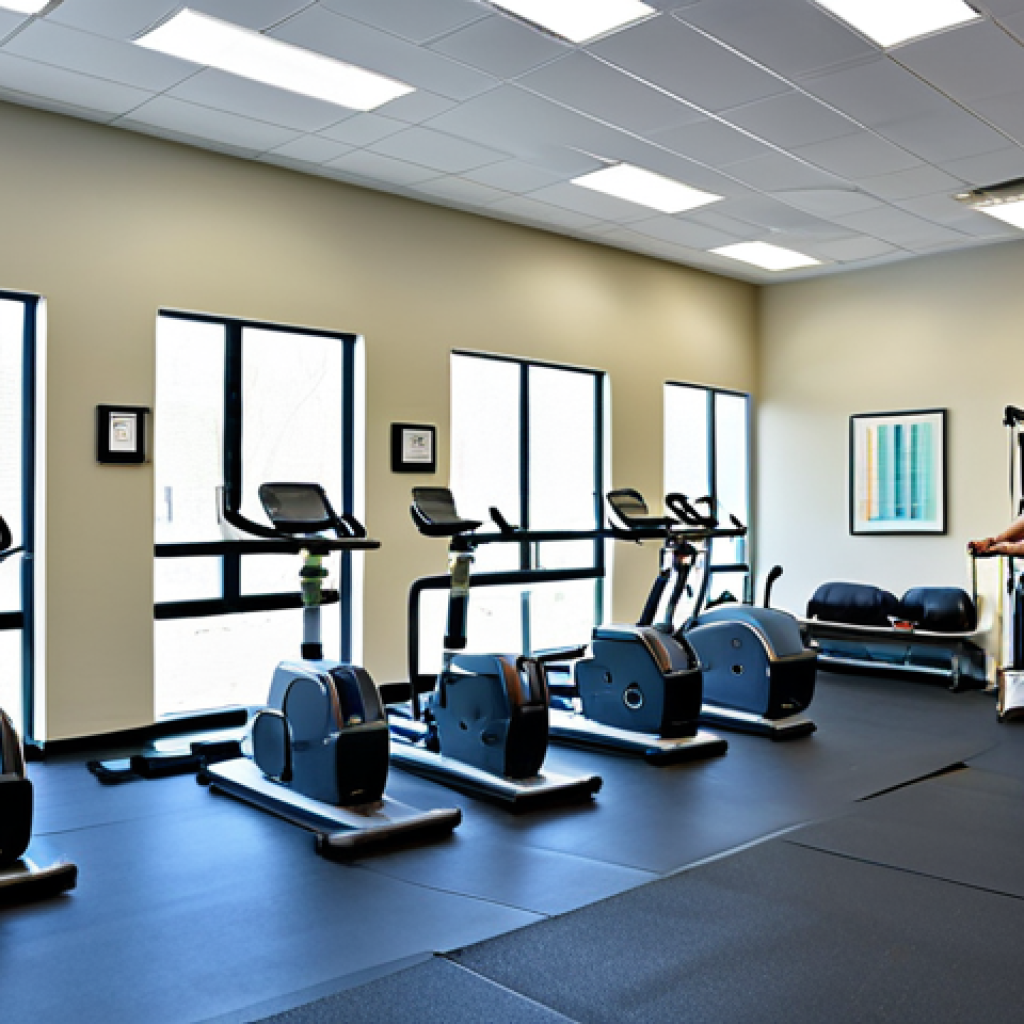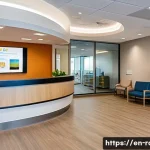Neuromuscular disorders can significantly impact one’s quality of life, affecting muscle strength and control. Finding the right rehabilitation hospital equipped to address these specific challenges is paramount.
From my experience, it’s not just about the facilities, but the compassionate care and tailored treatment plans that truly make a difference. The advancements in rehabilitation technology, coupled with a dedicated team, can offer hope and improved functionality.
We’ll dive into the specifics of what to look for and what kind of cutting-edge therapies are emerging. Let’s take a closer look in the article below!
## Navigating the Labyrinth: Selecting the Ideal Rehabilitation Center for Neuromuscular ConditionsNeuromuscular disorders, a diverse group of conditions affecting the nerves that control muscles, can present significant challenges in daily living.
When faced with such a diagnosis, the journey toward regaining strength, mobility, and independence often leads to rehabilitation. But with a multitude of options available, how does one navigate the labyrinth and select the rehabilitation center that best fits their unique needs?
I remember when my uncle was diagnosed with Guillain-Barré syndrome; the anxiety of finding the right place was overwhelming.
Decoding the Specialized Expertise

It’s essential to delve into the specific expertise offered by the rehabilitation center. Not all centers are created equal, and their experience with neuromuscular disorders can vary widely.
1. Inquire About Specific Neuromuscular Programs: Does the center have a dedicated program tailored to neuromuscular conditions? Look for centers with therapists who have advanced certifications or specialized training in treating these disorders.
2. Assess the Multidisciplinary Team: A comprehensive team is crucial. This should include neurologists, physiatrists (physical medicine and rehabilitation physicians), physical therapists, occupational therapists, speech therapists, and potentially, respiratory therapists, depending on the specific condition.
I learned firsthand the importance of a speech therapist when my aunt was recovering from a stroke. 3. Investigate the Center’s Track Record: Ask about the center’s success rates with patients who have similar conditions.
While privacy laws may limit specific details, they should be able to provide general information about patient outcomes and satisfaction.
The Symphony of Therapies: Tailoring Treatment to Individual Needs
Rehabilitation isn’t a one-size-fits-all approach. The best centers orchestrate a symphony of therapies, carefully tailoring the treatment plan to each individual’s specific needs and goals.
Precision in Treatment Protocols
1. Evaluating the Initial Assessment: A thorough initial assessment is paramount. This should involve a comprehensive evaluation of muscle strength, range of motion, functional abilities, and overall cognitive function.
2. Personalized Therapy Programs: Seek out centers that prioritize individualized treatment plans. These plans should be regularly reviewed and adjusted based on the patient’s progress and changing needs.
I once saw a therapist creatively adapt exercises using everyday objects to keep a patient engaged.
The Role of Assistive Technology
Assistive technology can play a pivotal role in enhancing independence and quality of life. 1. Exploring the Options: Rehabilitation centers should offer access to a wide range of assistive devices, such as orthotics, wheelchairs, walkers, and communication aids.
2. Training and Education: It’s not enough to simply provide the technology; patients and their caregivers need proper training and education on how to use it effectively and safely.
Embracing Innovation: The Dawn of Advanced Rehabilitation Technologies
The field of rehabilitation is constantly evolving, with new technologies emerging that offer the potential to improve outcomes and enhance the recovery process.
Robotics and Exoskeletons
1. Gait Training Robots: These devices can assist with walking and improve gait patterns. They’re especially beneficial for individuals with weakness or paralysis in the legs.
2. Upper Extremity Robots: These robots can help with reaching, grasping, and other fine motor skills. They’re often used to rehabilitate individuals with stroke or spinal cord injuries.
Virtual Reality and Gaming
Virtual reality and gaming technologies are increasingly being used in rehabilitation to make therapy more engaging and motivating. 1. Immersive Environments: Virtual reality can create immersive environments that simulate real-world scenarios, allowing patients to practice functional skills in a safe and controlled setting.
2. Gamified Exercises: Gamified exercises can make therapy more fun and rewarding, encouraging patients to participate more actively in their recovery.
Creating a Supportive Eco
Rehabilitation extends beyond the formal therapy sessions. The environment and support system play a crucial role in fostering healing and promoting long-term well-being.
The Importance of Psychological Support
1. Counseling Services: Adjusting to life with a neuromuscular disorder can be emotionally challenging. Access to counseling services can help patients cope with the psychological impact of their condition and develop strategies for managing stress and anxiety.
2. Support Groups: Connecting with others who have similar experiences can provide a sense of community and understanding. Support groups offer a safe space to share feelings, exchange tips, and build friendships.
Family Involvement: A Cornerstone of Recovery
Family involvement is essential for successful rehabilitation. 1. Education and Training: Rehabilitation centers should provide education and training to family members on how to support their loved one’s recovery at home.
2. Active Participation: Encouraging family members to actively participate in therapy sessions can help them understand the treatment plan and learn how to provide assistance.
Financial Acumen: Navigating the Complexities of Rehabilitation Costs
Rehabilitation can be a significant financial investment. Understanding the costs involved and exploring available funding options is crucial.
Deciphering the Insurance Maze
1. Coverage Policies: Thoroughly research your insurance policy to understand the extent of coverage for rehabilitation services. 2.
Pre-authorization Requirements: Be aware of any pre-authorization requirements and ensure that all necessary documentation is submitted in a timely manner.
Exploring Alternative Funding Avenues
1. Government Programs: Investigate potential eligibility for government programs such as Medicare or Medicaid. 2.
Non-profit Organizations: Explore non-profit organizations that provide financial assistance to individuals with neuromuscular disorders. I recall a local organization that helped a friend of mine cover the costs of a specialized wheelchair.
| Factor | Description | Importance |
|---|---|---|
| Specialized Expertise | Experience with neuromuscular disorders | High |
| Multidisciplinary Team | Neurologists, therapists, etc. | High |
| Tailored Treatment | Individualized therapy plans | High |
| Assistive Technology | Access to devices | Medium |
| Advanced Technologies | Robotics, VR, etc. | Medium |
| Psychological Support | Counseling services | Medium |
| Family Involvement | Education and participation | High |
| Financial Considerations | Insurance coverage | High |
Navigating the world of neuromuscular rehabilitation can feel like charting unknown waters, but with the right knowledge and resources, you can confidently select the center that will best support your journey to recovery.
By prioritizing specialized expertise, personalized treatment, and a supportive environment, you can pave the way for a brighter, more independent future.
When we equipped my father with the tools he needed, he even managed to travel and see new places again!
In Conclusion
Choosing a rehabilitation center is a deeply personal decision, one that requires careful consideration and research. Remember, it’s not just about the facility itself, but about the people within it—the therapists, doctors, and support staff who will walk alongside you on your path to recovery. Trust your instincts, ask questions, and advocate for your needs. Your dedication, paired with the right rehabilitation program, can unlock a future filled with greater independence and enhanced well-being. Just keep in mind, every step forward counts.
Useful Information to Know
1. The National Institute of Neurological Disorders and Stroke (NINDS) offers extensive resources on neuromuscular disorders, including information on diagnosis, treatment, and research.
2. The Muscular Dystrophy Association (MDA) provides support and resources for individuals and families affected by muscular dystrophy and related neuromuscular diseases. They can also help you find local support groups and MDA clinics.
3. The ALS Association offers comprehensive support and resources for individuals living with ALS (Amyotrophic Lateral Sclerosis) and their families. They provide information on caregiving, financial assistance, and research.
4. Medicare and Medicaid can provide coverage for rehabilitation services. Contact your local Social Security office to learn more about eligibility requirements and coverage options. Don’t hesitate to ask about supplemental insurance options as well.
5. The Commission on Accreditation of Rehabilitation Facilities (CARF) is an independent, non-profit organization that accredits rehabilitation facilities. Look for CARF-accredited centers to ensure they meet high standards of quality and care.
Key Takeaways
Choosing the right rehabilitation center involves assessing expertise in neuromuscular conditions, the presence of a multidisciplinary team, and the availability of tailored treatment plans. Assistive and advanced technologies can significantly aid recovery, while psychological support and family involvement are crucial for overall well-being. Don’t forget to understand the financial implications and insurance coverage to make an informed decision.
Frequently Asked Questions (FAQ) 📖
Q: What specific qualities should I look for in a rehabilitation hospital specializing in neuromuscular disorders?
A: Based on what I’ve seen, you really want a place that goes beyond just having fancy equipment. Look for a hospital with a team of therapists and doctors who are actually experienced with your specific condition.
Ask about their approach to creating individualized treatment plans, because a one-size-fits-all approach just doesn’t cut it. And honestly, pay attention to the vibe – are the staff compassionate and genuinely invested in their patients’ well-being?
It makes a huge difference in your recovery journey. I remember visiting one place where the therapists seemed genuinely excited about the new techniques they were using, and that energy was infectious.
Q: What are some of the newer, cutting-edge therapies being used in neuromuscular rehabilitation that could potentially improve functionality?
A: Oh, there’s some really exciting stuff happening! I’ve read a lot about how things like robotic-assisted therapy are helping people regain movement and strength.
Functional electrical stimulation (FES) is another one to keep an eye on – it can actually stimulate muscles that are weakened or paralyzed. And don’t underestimate the power of virtual reality (VR) therapy.
It sounds like something out of a sci-fi movie, but it can be incredibly effective in improving balance and coordination. Always check if the hospital uses evidence-based methods and if the staff keeps up with the latest studies.
Q: How important is the “E-E-
A: -T” (Experience, Expertise, Authoritativeness, Trustworthiness) factor when choosing a rehabilitation hospital for a neuromuscular condition? A3: It’s absolutely crucial.
Honestly, you’re entrusting your health and well-being to these people, so you need to be confident they know what they’re doing. Experience is key – how long have they been treating neuromuscular disorders?
Expertise means they have specialized knowledge and certifications relevant to your condition. Authoritativeness comes from things like published research, recognized experts on staff, and affiliations with reputable organizations.
And trustworthiness? That’s about transparency, clear communication, and a commitment to patient care. When I was researching options, I was more comfortable with hospitals that readily shared patient testimonials and outcome data – it showed they were confident in their results and committed to honest communication.
📚 References
Wikipedia Encyclopedia






